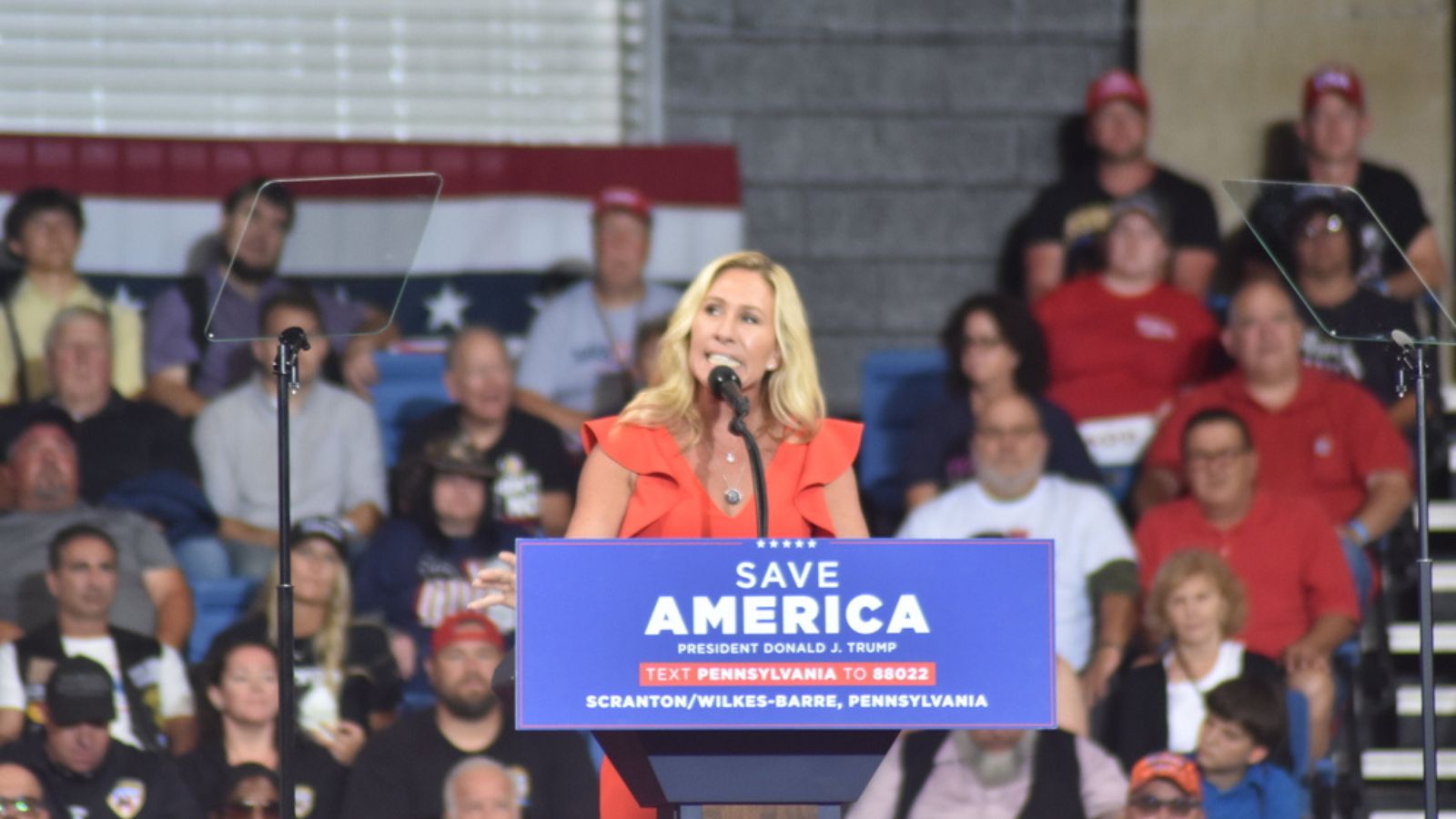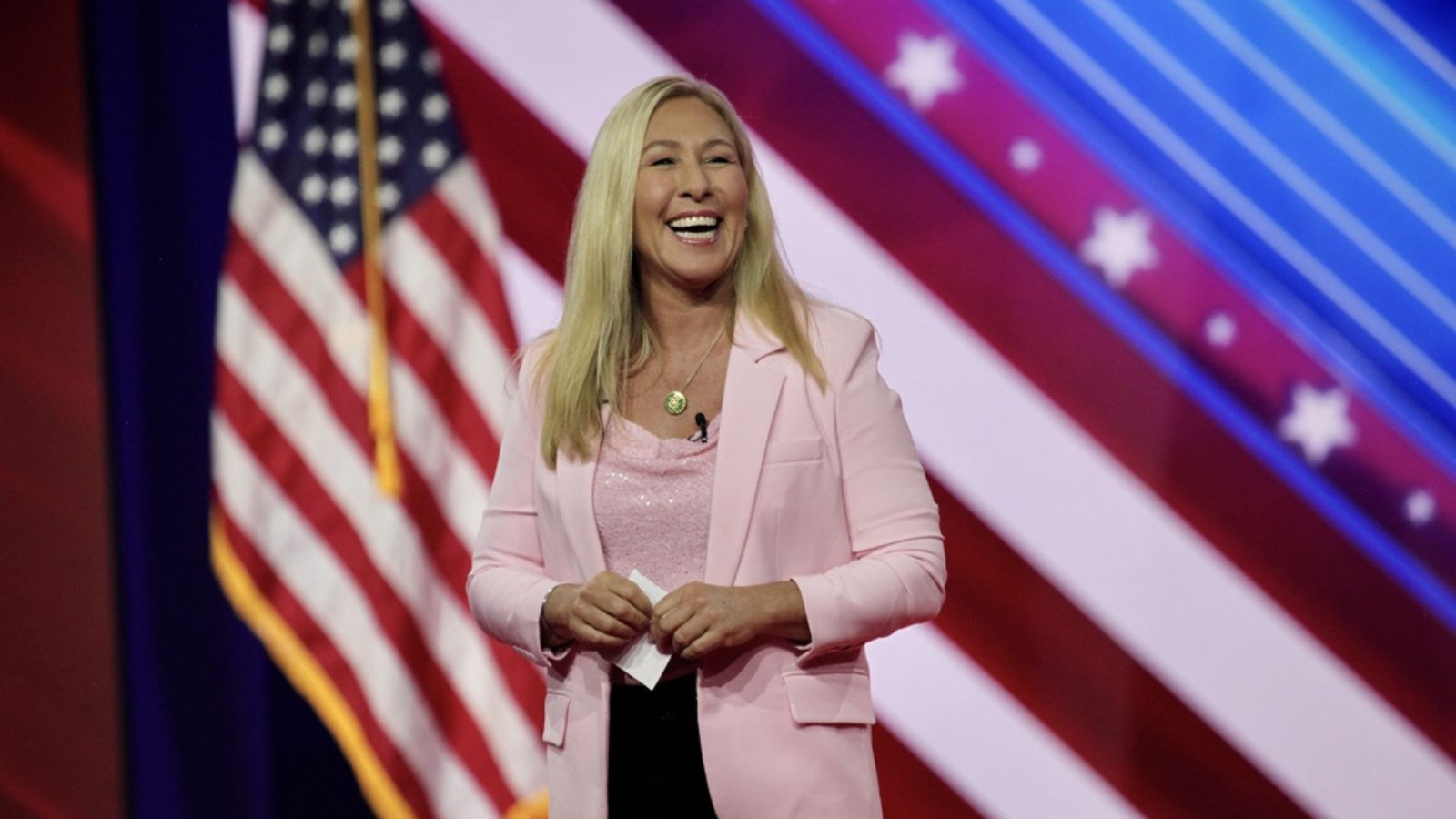In a recent legislative session, U.S. Representative Marjorie Taylor Greene proposed a contentious amendment to a major foreign assistance bill aimed at Ukraine, setting off a storm of accusations and speculation about undue influence and geopolitical maneuvering.
As part of efforts to bolster support for Ukraine amidst ongoing conflicts, House Speaker Mike Johnson advanced a legislative package that includes substantial financial aid.
The proposed Ukraine Security Supplemental Appropriations Act 2024 allocates about $60 billion to aid Ukrainian defense efforts against Russian aggression.
Read More: Trump Brings Back ‘Bloodbath’ Imagery in Latest Attack on Biden’s Border Policies

Rep. Greene introduced an amendment, mentioning Hungarians in the Transcarpathia region.
Her amendment intended to block funds to Ukraine unless it changes its policy on placing restrictions on the use of native languages by ethnic minorities in schools.
Political pundits swiftly attacked the amendment, claiming that Greene’s idea repeated a “nuanced Russian disinformation narrative.”
He maintained that the accusations of Hungarian persecution are nothing more than Russian and Hungarian propaganda.
Officially referred to as Zakarpattia Oblast, the region mentioned in the amendment is a diverse place bordering Hungary.
Following a 2017 Ukrainian law that prioritizes the Ukrainian language in state educational institutions, this region has gained prominence in discussions over national language policies.
There have been allegations that Greene or her staff are being swayed by “Russian handlers” due to the specificity of her amendment, especially its emphasis on a relatively obscure regional issue.
Such narratives, according to critics, usually advance Russian geopolitical objectives as opposed to American ones.
Also Read: Trump Says Biden ‘Has Totally Abandoned Israel,’ Slams Jewish Voters Who Still Support Him

American political scientist Tom Nichols weighed in on the controversy, expressing skepticism about the direct labeling of Greene as a Russian asset.
However, he acknowledged that the detailed nature of the amendment suggests that someone with substantial knowledge of the region’s issues might have influenced its creation.
The proposed amendment and the ensuing controversy highlight the complexities of U.S. legislative support for Ukraine.
Read Next: Ukraine’s Defense Deteriorates Against Russian Forces as Congress Debates Aid

Such debates can potentially impact the broader geopolitical alignment, especially concerning U.S. commitments to supporting Ukraine against Russian military threats.
The reaction within Congress to Greene’s amendment has been mixed, with some viewing it as a legitimate legislative check on foreign aid, while others see it as an unnecessary complication that could hinder U.S. foreign policy objectives in Eastern Europe.
As the debate over Greene’s amendment unfolds, it will be crucial to monitor how this issue influences the broader U.S. strategy towards Ukraine and the region.
The ongoing accusations of foreign influence underscore the sensitive nature of foreign aid and the intersecting interests that characterize international politics.


 Tags:
Tags:










